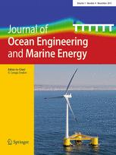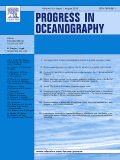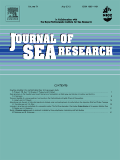
MARINE TECHNOLOGY SOCIETY JOURNAL
Scope & Guideline
Exploring the Depths of Marine Engineering
Introduction
Aims and Scopes
- Marine Engineering and Technology Development:
The journal emphasizes advancements in marine engineering, including the design, testing, and application of technologies such as AUVs (Autonomous Underwater Vehicles), underwater sensors, and marine renewable energy systems. - Ocean Observation and Monitoring:
A core focus is on the development and implementation of ocean observation technologies, including moored buoys, remote sensing, and integrated data systems that support marine research and environmental monitoring. - Sustainable Marine Practices:
Research addressing sustainable practices in marine environments, including the impacts of deep-sea mining, marine biodiversity conservation, and the integration of renewable energy sources into marine operations. - Interdisciplinary Collaboration:
Encouraging collaboration among diverse stakeholders, such as scientists, engineers, policymakers, and industry professionals, to address complex challenges facing ocean ecosystems and marine resources. - Capacity Building and Education:
The journal promotes initiatives aimed at enhancing the skills and knowledge of early-career professionals and stakeholders in the marine technology sector, supporting the UN Decade of Ocean Science for Sustainable Development.
Trending and Emerging
- Innovative Autonomous Systems:
The use of autonomous systems, such as AUVs and drones, for marine research and monitoring has gained significant traction, highlighting advancements in technology that allow for more efficient and extensive data collection. - Ocean Sustainability Initiatives:
A growing body of research focuses on sustainability initiatives, particularly those aligned with the UN Ocean Decade goals, emphasizing practices that promote ecological balance and long-term marine resource management. - Data Integration and Smart Technologies:
Emerging trends in the integration of big data analytics, machine learning, and IoT (Internet of Things) technologies for enhanced marine monitoring and predictive modeling are increasingly prominent. - Climate Change Adaptation and Mitigation:
Research addressing the impacts of climate change on marine environments, including adaptation strategies and mitigation approaches, is becoming increasingly critical and prevalent. - Community and Stakeholder Engagement:
There is a rising emphasis on community involvement and stakeholder engagement in marine science and technology, recognizing the importance of local knowledge and collaborative approaches in ocean governance.
Declining or Waning
- Traditional Marine Resource Extraction:
Research focused on conventional methods of marine resource extraction, such as fishing and oil drilling, has diminished as the focus shifts towards sustainability and alternative energy solutions. - Static Marine Infrastructure:
Studies related to static marine infrastructure, such as traditional fixed platforms for oil and gas extraction, are less frequent, indicating a move towards more dynamic and flexible systems. - Conventional Ship Design and Operation:
Interest in traditional ship design methodologies and operational practices has waned, replaced by a focus on automation, smart shipping technologies, and environmentally friendly designs. - Localized Environmental Impact Assessments:
Research specifically centered on localized assessments of environmental impacts has decreased, as there is a growing trend towards comprehensive, ecosystem-based assessments that consider broader marine interactions. - Non-Integrated Monitoring Systems:
There is a noticeable reduction in studies focusing on isolated monitoring systems, as the trend moves towards integrated approaches that combine various data sources for comprehensive ocean management.
Similar Journals

Research in Marine Sciences
Exploring the depths of marine science for global impact.Research in Marine Sciences, ISSN 2538-5542, is a leading journal published by ARMAN DARYA INC, specializing in the dynamic and interdisciplinary field of marine science. With a commitment to advancing knowledge in areas such as marine ecology, oceanography, and marine conservation, this journal provides a collaborative platform for researchers, professionals, and students to disseminate their findings. Although it operates under a traditional subscription model, the journal ensures that the latest research is accessible to a wide audience, promoting the understanding of marine environments crucial for biodiversity and sustainability. The journal aims to bridge the gap between theoretical research and practical applications, emphasizing the need for rigorous studies that address pressing marine issues in a rapidly changing world. By contributing to the body of literature in marine sciences, Research in Marine Sciences plays a vital role in shaping the future of marine research and policy-making.

Journal of Ocean Engineering and Marine Energy
Advancing Research for a Greener Marine FutureJournal of Ocean Engineering and Marine Energy, published by SpringerNature, stands at the forefront of interdisciplinary research within the fields of ocean engineering and marine energy. Since its inception in 2015, this journal has aimed to address critical challenges and innovations in energy systems, particularly those harnessed from marine environments, thereby contributing to sustainable development and efficient resource management. With an esteemed Q2 ranking in multiple categories such as Energy Engineering and Power Technology, and Ocean Engineering, the journal serves as a vital platform for researchers, professionals, and students seeking to disseminate and engage with cutting-edge research and technological advancements. Boasting a robust readership and a commitment to open-access principles, the journal fosters a collaborative environment for the exploration of new ideas and approaches in a rapidly evolving sector. By bridging the gap between academia and industry, Journal of Ocean Engineering and Marine Energy remains instrumental in shaping the future of renewable energy solutions and environmental sustainability.

Journal of Marine Science and Technology-Taiwan
Exploring the depths of marine science and technology.The Journal of Marine Science and Technology-Taiwan, published by Nant Taiwan Ocean University, is a pivotal academic platform dedicated to the advancement of knowledge in the fields of marine science and engineering. With an ISSN of 1023-2796 and E-ISSN 2709-6998, this journal spans a wide array of topics relevant to the study and application of marine technology from 1998 to 2024. It ranks in the Q3 quartile in major categories such as Mechanical Engineering, Mechanics of Materials, and Ocean Engineering, illustrating its growing influence and the breadth of research it encompasses. Although currently not an open access journal, it provides critical insights to researchers, professionals, and students alike, making significant contributions to the understanding of marine environments and technologies. As the journal continues to evolve, its commitment to high-quality, impactful research remains central to its mission, empowering scholars to drive innovation in the dynamic field of marine science.

Marine Intellectual Technologies
Pioneering breakthroughs in oceanography and aquatic systems.Marine Intellectual Technologies is an innovative open-access journal dedicated to advancing the field of marine science and technology. Published by the Research Centre Marine Intelligent Technologies, this journal serves as a platform for researchers, professionals, and students to share their latest findings and developments related to marine engineering, oceanography, and aquatic systems. With its commitment to disseminating high-quality research, Marine Intellectual Technologies plays a pivotal role in fostering collaboration and knowledge exchange among the global marine research community. Although the journal's impact factor is currently under review, its focus on embracing cutting-edge technologies and methodologies positions it at the forefront of marine scholarship, allowing for greater insights into sustainable ocean use and marine resource management. Additionally, the accessibility of research published in this journal supports the ongoing educational pursuits of scientists and practitioners alike, ensuring that important marine research is readily available to all.

JOURNAL OF OCEANOGRAPHY
Navigating the Future of Marine ResearchJOURNAL OF OCEANOGRAPHY, published by Springer, stands as a leading academic journal in the field, with an impressive Q1 ranking in Oceanography for 2023. Since its inception in 1992, this journal has dedicated itself to the dissemination of high-quality research that spans a diverse array of topics within oceanography and earth sciences. With an ISSN of 0916-8370 and an E-ISSN of 1573-868X, it plays a crucial role in bridging the gap between academia and practical marine applications. The journal is indexed in Scopus, ranking #57 out of 145 in its category, reflecting its rigorous academic standards and the impact of its published works, reaching a notable ile in the 61st percentile. Located in Japan, the JOURNAL OF OCEANOGRAPHY provides a vital platform for sharing significant research findings that contribute to our understanding of marine environments, aiming to foster interdisciplinary collaboration among researchers, professionals, and students dedicated to marine science.

PROGRESS IN OCEANOGRAPHY
Exploring the Depths of Ocean SciencePROGRESS IN OCEANOGRAPHY is a pivotal journal published by PERGAMON-ELSEVIER SCIENCE LTD, dedicated to advancing the field of oceanographic research and exploration. With an ISSN of 0079-6611 and an E-ISSN of 1873-4472, this esteemed publication has been disseminating significant findings from 1963 and continues to be a cornerstone in aquatic sciences and geology, holding a distinguished Q1 ranking in both categories as of 2023. The journal primarily focuses on innovative research that contributes to our understanding of ocean processes, marine ecosystems, and the impact of human activities on the oceans. Its exclusive access model facilitates the dissemination of high-quality content that resonates with researchers, professionals, and students alike, ensuring that vital insights are accessible to the global scientific community. With a firm commitment to upholding rigorous scientific standards, PROGRESS IN OCEANOGRAPHY remains an influential platform for the communication of groundbreaking research, providing scholars with invaluable resources to drive future oceanographic studies.

OCEANOLOGY
Diving into Innovative Marine ResearchOCEANOLOGY is a distinguished journal published by Pleiades Publishing Inc that has been a pivotal platform for advancing knowledge in the field of oceanography since its inception. With an ISSN of 0001-4370 and E-ISSN 1531-8508, this journal covers a range of topics related to marine sciences, geographical oceanography, and environmental studies, providing insights and research that significantly contribute to our understanding of oceanic systems. Recognized for its academic rigor, OCEANOLOGY holds a Q3 quartile ranking in the Oceanography category as of 2023, reflecting its impact within the scientific community as evidenced by its Scopus rank of 85 out of 145. Although currently not an open-access journal, OCEANOLOGY remains essential for researchers, professionals, and students by offering a comprehensive collection of peer-reviewed articles. This multidisciplinary approach equips its audience with valuable data and perspectives critical for ongoing research and development in ocean-related fields.

Indian Journal of Geo-Marine Sciences
Exploring the Depths of Marine KnowledgeThe Indian Journal of Geo-Marine Sciences, published by the NATIONAL INSTITUTE OF SCIENCE COMMUNICATION & INFORMATICS (NISCAIR), serves as a vital platform dedicated to the dissemination and advancement of knowledge in the field of marine and geosciences. As an open-access journal, it allows for improved visibility and accessibility of research findings to a global audience, enabling researchers, professionals, and students to share insights into oceanography and related disciplines. With a publication history spanning from 2007 to 2010 and continuing from 2012 to 2024, it has established itself within the academic community as a reliable source of innovative research, despite being classified in Q4 of Oceanography and holding a Scopus rank that places it in the 27th percentile. This journal is particularly relevant for those investigating marine ecosystems, geological oceanography, and their interconnections, thus playing an essential role in fostering understanding and communication within this important area of scientific inquiry.

JOURNAL OF SEA RESEARCH
Unveiling the Mysteries of Our OceansJOURNAL OF SEA RESEARCH, published by Elsevier, is a premier academic journal dedicated to advancing knowledge in the fields of aquatic science, ecology, and oceanography. Since its inception in 1996, this journal has provided a vital platform for researchers and professionals to disseminate groundbreaking findings and promote fostering interdisciplinary discussions. With its impressive Q2 ranking in multiple categories, including Aquatic Science and Ecology, Evolution, Behavior and Systematics, it positions itself as a significant contributor to marine and environmental studies. The journal is accessible in both print (ISSN: 1385-1101) and online formats (E-ISSN: 1873-1414), ensuring wide reach and engagement within the scholarly community. Researchers and students alike will find the journal not only a reliable source of information but also a source of inspiration for future explorations. With a commitment to quality and a broad scope that spans fundamental to applied research, JOURNAL OF SEA RESEARCH remains an indispensable resource for understanding the complexities of marine environments and their relevance to our changing world.

Journal of Operational Oceanography
Fostering Collaboration for a Deeper Understanding of Our OceansThe Journal of Operational Oceanography, published by Taylor & Francis Ltd, stands as a pivotal platform within the field of oceanography, focusing on the integration of operational practices, technology, and scientific research. With a strong impact factor and a notable Q2 quartile ranking in the category of Earth and Planetary Sciences, this journal offers researchers, professionals, and students a vital resource for disseminating new knowledge and innovative methodologies related to ocean studies. Covering a range of topics from marine data analysis to the application of oceanographic principles in sustainable practices, the journal’s content is crucial for advancing understanding in this dynamic field. Operating since 2008 and continuing through 2024, it is dedicated to fostering collaboration and dialogue among the scientific community, ensuring accessibility to essential findings that drive informed decision-making in marine science. With its commitment to high-quality, peer-reviewed articles and a ranking in the top 10th percentile of its category, the Journal of Operational Oceanography is an indispensable resource for those looking to make significant contributions to marine research.